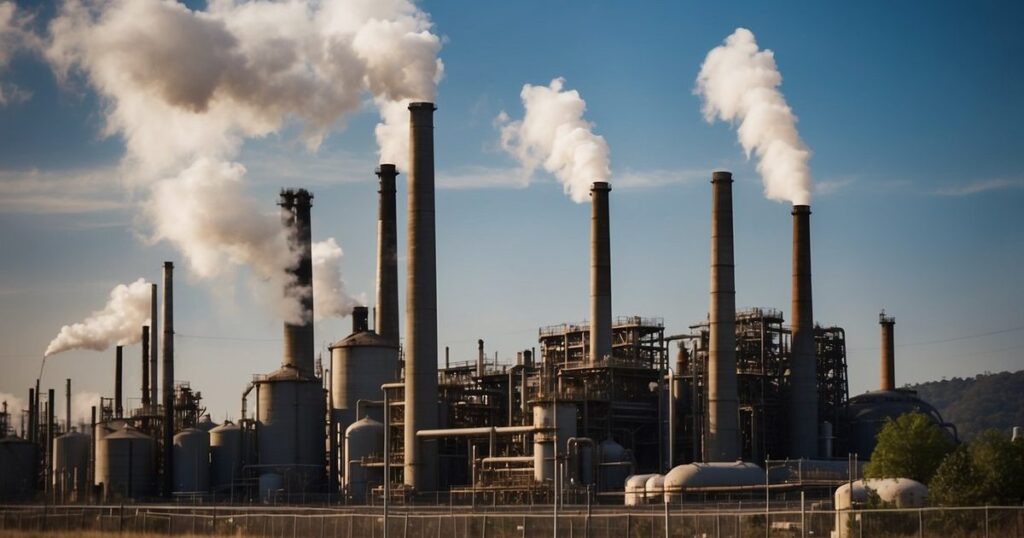The industrial gas industry plays a pivotal role in shaping the global economy. Your understanding of this sector’s impact is essential for grasping the intricacies of economic development and growth internationally. This industry not only fuels a vast array of other sectors by providing essential gases for processes like manufacturing, healthcare, and technology but also significantly contributes to global energy demand and consumption. As you explore the complex relationship between industrial gases and economic performance, consider how the fluctuations in energy consumption influence the overall economic health of nations.
Economic impacts of industrial gases manifest in various facets of the global economy. The supply and demand dynamics of industrial gases affect prices, which in turn have implications for consumers and energy markets at large. These gases are critical for industries that drive economic growth, from heavy manufacturing to food processing, impacting total energy consumption and, ultimately, national and global GDP. Your focus on the demand for these gases can reveal insights into the fortunes of these intertwined industries and highlight the benefits of efficient energy use.
Attention to how the industrial gas industry influences economic development provides a more nuanced understanding of the global energy landscape. As energy consumption patterns evolve, driven by economic growth and technological advancements, your perspective on the industry’s contribution to the economy will benefit from an appreciation of its role in providing energy solutions that meet burgeoning demands. Acknowledging this dynamic allows you to appreciate the industry’s significance in fostering sustainable economic development and catering to the complex energy needs of a growing global population.
Economic Significance of Industrial Gas

The industrial gas sector is a crucial component of the global economy, driving economic growth in various industries by providing essential gases such as oxygen, nitrogen, and hydrogen. In the United States and Europe, the transition from coal to natural gas has spurred economic benefits, reducing greenhouse emissions and contributing to climate change efforts while sustaining energy security.
In Asia, countries like China are increasing the demand for natural gas to support their expansive industrial sectors while also tackling global warming concerns. Russia and Brazil continue to play significant roles in the natural gas market, affecting global gas prices and availability.
Companies are integrating renewable energy sources such as wind and solar with natural gas to create sustainable and reliable energy systems. This synergy aids the energy transition, reducing reliance on fossil fuels like oil and coal. Liquified Natural Gas (LNG) has emerged as a key player, offering flexibility and helping mitigate the volatility of gas demand and prices.
The economic benefits of the oil and gas industry are especially prominent in the power sector, where natural gas is replacing coal to generate electricity more efficiently. This shift promotes cleaner energy while providing considerable capital investment opportunities for investors seeking stable returns.
The global industrial gas market is undergoing significant changes with the emergence of renewable energy technologies. However, your economic growth is still tightly linked to the availability and price of industrial gases, which, despite crude and oil price fluctuations, remain indelibly inked into your economic fabric.
Environmental Considerations and Policy Dynamics

In addressing the economic impact of the industrial gas sector, your understanding of environmental considerations and policy dynamics is critical. These aspects play a vital role in shaping the industry’s future and its global economic implications.
Impact on Climate and Renewable Energy Integration
Climate Change: The industrial gas industry significantly affects climate change through greenhouse gas emissions, primarily carbon dioxide (CO2) and methane (CH4). Your operation’s carbon footprint is closely monitored as these gases contribute to global warming. Renewable Energy: Integration of renewable energy technologies is increasingly pivotal, both for environmental protection and economic security. Employing carbon capture, utilisation, and storage (CCUS) in refineries and cement production is seen as essential in reducing emissions and aiding the energy transition.
Policy Framework and Economic Incentives
Government Policies: Government policy is instrumental in steering the industrial gas sector towards sustainable development. Economic incentives, often in the form of subsidies or tax rebates, are designed to encourage investments in environmentally friendly technologies like batteries for electric vehicles and renewable energy sources. Public Health and Security: Policies are also concerned with public health and supply chain security. The shift towards an economic structure that aligns with environmental protection requires comprehensive measures that include monitoring of emissions and support for developments in CCUS technologies.
Frequently Asked Questions
This section addresses common questions on the economic impact of the industrial gas industry, detailing both positive and negative effects.
What role does the oil and gas industry play in shaping a country’s economy?
The oil and gas industry is a cornerstone of many economies, providing substantial revenues through exports and job creation. It contributes significantly to the gross domestic product (GDP) of countries that are abundant in these natural resources.
In what ways does natural gas production affect economic growth and stability?
Natural gas production boosts economic growth by supplying energy for domestic and industrial use, which can lead to energy self-sufficiency and economic stability. It also reduces energy costs and increases energy security.
How significant are fossil fuels to the economic development of industrialised nations?
Fossil fuels have historically been vital to the economic development of industrialised nations by powering manufacturing, transportation, and electricity generation, thereby fuelling industrialisation and urbanisation.
What are the primary economic benefits associated with oil drilling activities?
Oil drilling activities can lead to the discovery of substantial oil reserves, which can attract investment, increase export earnings, enhance energy security, and create employment opportunities in the operations and associated industries.
Could you detail the negative economic consequences of industrial gas utilisation?
Industrial gas utilisation can have negative economic impacts, including the costs associated with environmental damage, health expenditures due to pollution, and the economic risk of relying on depleting resources.
How critical is the petrochemical industry to the economic advancement of the United States during the Industrial Revolution?
During the Industrial Revolution, the petrochemical industry played a pivotal role in the United States’ economic advancement, providing the materials needed for manufacturing and chemical processes, which were integral to industrial growth and infrastructure development.


